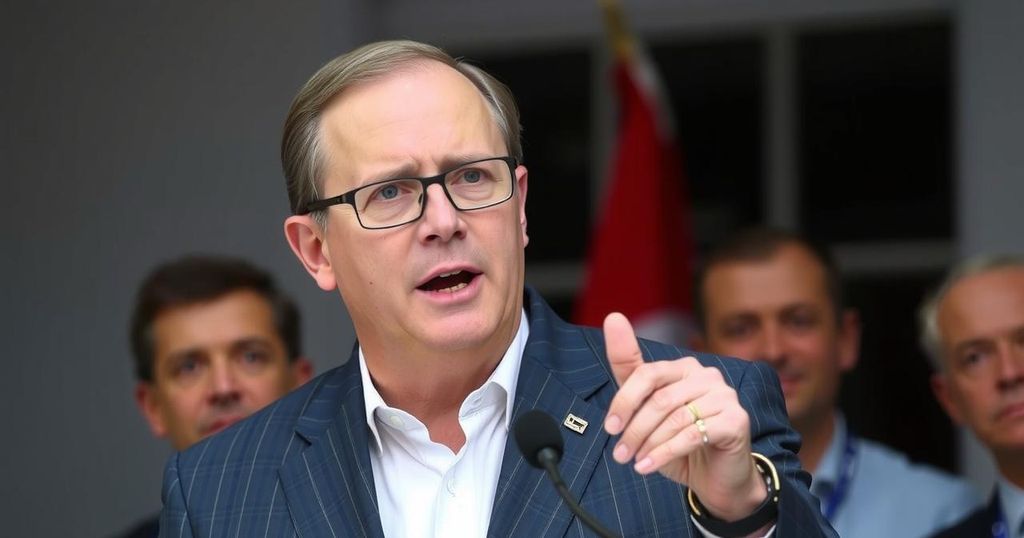Croatia’s Presidential Election: Zoran Milanović Faces Competitive Reelection Bid

Croatia’s President Zoran Milanović seeks reelection amid criticism of Western support for Ukraine. Facing several candidates, including conservative Dragan Primorac, he may require a runoff to secure victory. The election highlights key issues, such as corruption and Western alignment.
ZAGREB – Croatia’s incumbent president, Zoran Milanović, is vying for reelection against a range of opponents, including the candidate endorsed by the ruling conservative government. As a past prime minister and strong critic of Western military aid to Ukraine, Milanović remains a prominent figure in Croatian politics. Though he is currently viewed as a frontrunner, an outright victory may be challenging. A runoff election will occur on January 12 if none of the eight candidates secure over 50% of the votes in the first round.
Milanović’s populist style and vocal opposition to Prime Minister Andrej Plenković have characterized the recent political landscape. Plenković’s Croatian Democratic Union has backed Dragan Primorac, a pediatrician and professor, who positions himself as a unifying candidate in contrast to Milanović’s perceived divisiveness. Although the Croatian presidency is largely a ceremonial position, the elected president wields considerable authority and acts as commander-in-chief of the military.
Milanović has publicly criticized the European Union’s stance on Ukraine, arguing for Croatia’s neutrality and asserting, “No Croatian soldier will take part in somebody else’s war.” His challenger, Primorac, advocates for Croatia’s alignment with Western powers, despite a recent high-profile corruption scandal involving the health minister that has impacted Primorac’s campaign.
Political analyst Andjelko Milardović suggests that Milanović’s reelection could bolster democratic processes in Croatia, where the ruling party maintains substantial influence over multiple government branches. “We are interested to see a balance and control of power,” Milardović stated. Meanwhile, Marija Selak Raspudić, a conservative independent candidate, could pose a formidable challenge to Milanović if she reaches the runoff, focusing on economic issues and corruption.
The only left-green candidate, Ivana Kekin from the Možemo party, emphasizes her appeal to younger voters and has criticized the opposition for alleged corrupt practices. However, polling indicates she is trailing behind her competitors. Observers note the presence of four additional candidates who are unlikely to advance in the election process. While some constituents express anticipation for Milanović’s continuation in office, sentiments linger regarding dissatisfaction with the candidates.
With 1.6 million eligible voters, Croatia, which joined the EU in 2013, is preparing for a pivotal electoral moment as its political future hangs in the balance.
The current electoral landscape in Croatia is shaped by significant political dynamics, particularly the tension between President Zoran Milanović and the ruling Croatian Democratic Union, led by Prime Minister Andrej Plenković. As an outspoken critic of Western military interventions and the war in Ukraine, Milanović’s return as president could impact Croatia’s foreign policy directions. This election is marked by both the potential for continuity in leadership and challenges raised by allegations of corruption which affect the main contenders.
In summary, Croatia’s presidential election presents a multifaceted contest with incumbent Zoran Milanović facing diverse contenders, each with distinct political agendas. The outcome of the vote may dictate not only Croatia’s internal political alignment but also its positioning within global conflicts. As the country stands at a crossroads, the electoral results will significantly influence its democratic health and governance.
Original Source: www.local10.com








